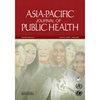亚洲青少年吸食毒品的范围研究。
IF 1.4
4区 医学
Q3 PUBLIC, ENVIRONMENTAL & OCCUPATIONAL HEALTH
引用次数: 0
摘要
关于全世界亚洲青少年吸食电子烟及其相关因素,人们知之甚少。我们对有关亚洲青少年吸食电子烟的国际文献进行了范围界定。亚洲青少年吸食电子烟的流行率因国家的电子烟政策而异:印度尼西亚在2019年的流行率最高,为32.2%(曾经吸食电子烟者)和11.8%(目前吸食电子烟者);日本在2017年的流行率最低,为2.1%至3.5%(曾经吸食电子烟者)和0.7%至1.0%(目前吸食电子烟者)。新西兰是一个控烟力度大但对吸食电子烟政策宽松的西方国家,2019年曾经吸食电子烟的比例为20.4%,经常吸食电子烟的比例为4.2%,每周吸食电子烟的比例为2.8%。在这两种情况下,吸食电子烟最常见的原因是好奇心和同伴影响。在亚洲的研究中,互联网是有关吸食电子烟的流行信息来源。在亚洲,更频繁地吸食电子烟的最常见原因是希望戒烟和能够在室内吸食电子烟,而在西方国家,排在前三位的原因分别是尼古丁浓度、尼古丁依赖和每天吸食电子烟的次数增多。为了解青少年的吸食行为,需要对这一异质性人群进行定期监测和更有针对性的研究,以便为适当的政策和法规提供依据。本文章由计算机程序翻译,如有差异,请以英文原文为准。
A Scoping Review of Vaping Among the Asian Adolescent Population.
Little is known about vaping and its associated factors among Asian adolescents worldwide. We did a scoping review of the international literature on vaping among Asian adolescents. The prevalence of Asian adolescent vaping varied by the country's e-cigarette policies: the highest prevalence in Indonesia 32.2% (ever vapers) and 11.8% (current vapers) in 2019 and the lowest in Japan with 2.1% to 3.5% (ever vapers) and 0.7% to 1.0% (current vapers) in 2017. In New Zealand, a Western country with strong tobacco control but liberal policies on vaping, the prevalence of ever vaping was 20.4%, regular vaping 4.2%, and weekly vaping 2.8% in 2019. The most common reasons for vaping in both contexts were curiosity and peer influence. The internet as a popular source of information on vaping was identified mostly in Asian studies. In Asian contexts, the most common reasons for more frequent vaping were the desire to quit smoking and the ability to vape indoors, whereas in Western countries, the top three reasons were nicotine concentration, nicotine dependence, and more daily vaping sessions. Regular monitoring and more targeted research to understand adolescents' vaping behaviors will need to be undertaken on this heterogeneous population to inform appropriate policies and regulations.
求助全文
通过发布文献求助,成功后即可免费获取论文全文。
去求助
来源期刊

Asia-Pacific Journal of Public Health
医学-公共卫生、环境卫生与职业卫生
CiteScore
3.30
自引率
4.00%
发文量
147
审稿时长
6 months
期刊介绍:
Asia-Pacific Journal of Public Health (APJPH) is a peer-reviewed, bimonthly journal that focuses on health issues in the Asia-Pacific Region. APJPH publishes original articles on public health related issues, including implications for practical applications to professional education and services for public health and primary health care that are of concern and relevance to the Asia-Pacific region.
 求助内容:
求助内容: 应助结果提醒方式:
应助结果提醒方式:


